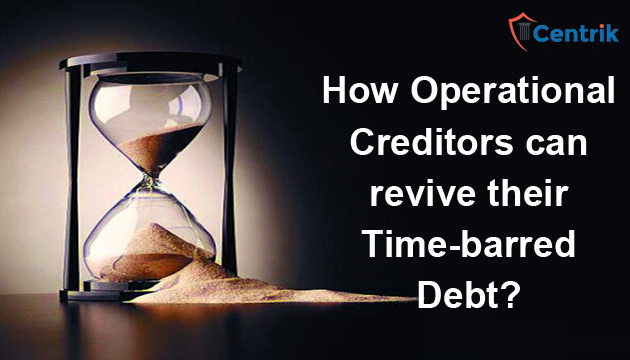
Status as on- 15/02/2020
Background
Until recently one of the challenging tasks has been the recovery of time-barred debts. The Supreme Court in Gaurav Hargovindbhai Dave vs Asset Reconstruction Company (India) Ltd. &Anr. (2019) has observed those time periods provided under Limitation Act, 1963 would be applicable over insolvency proceedings. Thus, in the light of the observations made by the Apex Court, it becomes a certainty that the Law of Limitation plays a major role in debt recovery matters. Therefore one such hindrance in matters of recovery longstanding debt has been the application of the Limitation Act, 1963 over Insolvency and Bankruptcy Code, 2016. However, the Cuttack Bench of the NCLT has paved the way for a revival of debt for initiating CIRP as an Operational Creditor.
Analysis
The Adjudicating Authority in the matter of M/s Coal Movers v. M/s Mekko Steel and Power Ltd. while dealing with the petition filed under Section 8 of the IBC, 2016, went on to lay the procedure to revive debts which are time-barred. As per the adjudicating authority the steps would be to:
- Firstly, to obtain an acknowledgment of the Debt from the Operational Creditor in terms of Section 18 of the Limitation Act, 1963
- Secondly, that the acknowledgment obtained must be before the expiry of the initial period of limitation of the debt that being 3 years.
Further, the adjudicating authority went on to provide the procedure for obtaining such acknowledgment. The acknowledgment vis-à-vis Sec 18 can be obtained through:
- Email correspondence acknowledging the Debt
- Entry in the Book of Accounts of the Company
- A Cheque (even if dishonored)
- Payment made in the earlier suit
Conclusion
Now as there is a certainty that the time-barred debt can be revived even after the lapse of an initial period of limitation which is 3 years. However, the most important question here remains that while determining the authenticity of the acknowledgment the adjudicating authority will apply the rules of evidence or it will be guided by its own wisdom in doing so. Therefore it all comes down to the suitability of the court and its exercise of discretion to adjudge the acknowledgment as admissible.
Disclaimer– The above article is based on the personal interpretation of related laws, which may differ from person to person. The readers are expected to take expert opinion before relying on this article. For more clarification, the readers can be expected at support@centrik.in




 join For Updates
join For Updates